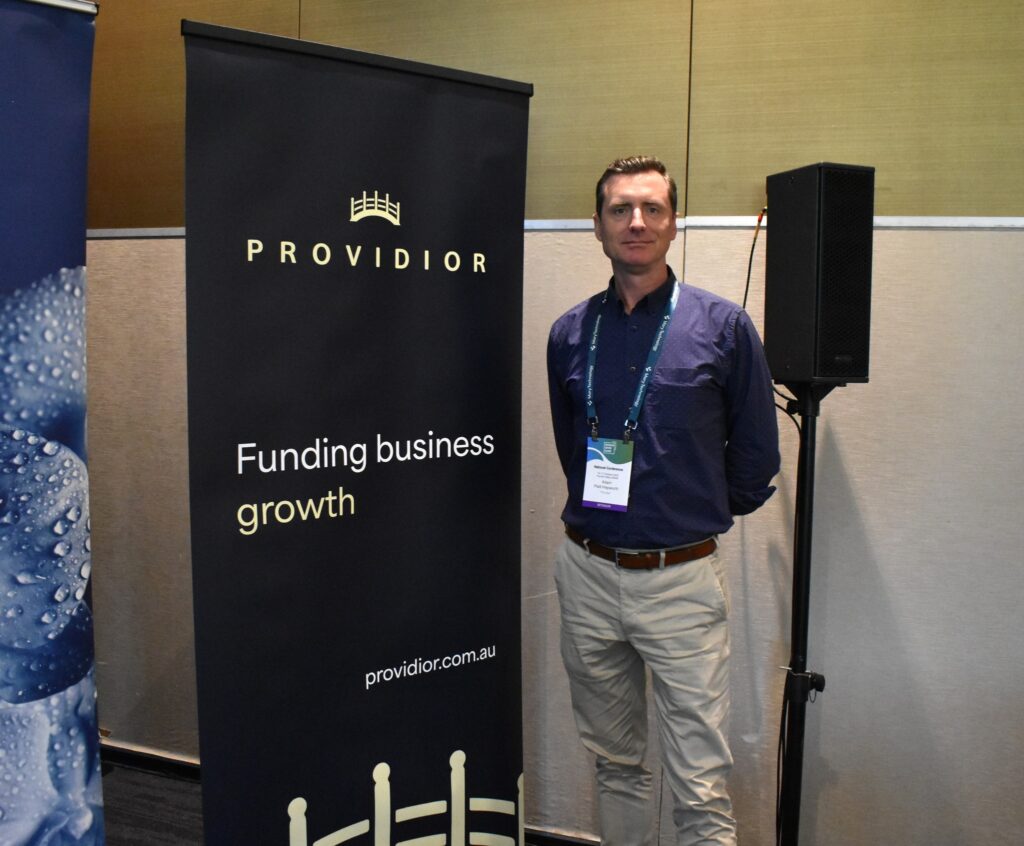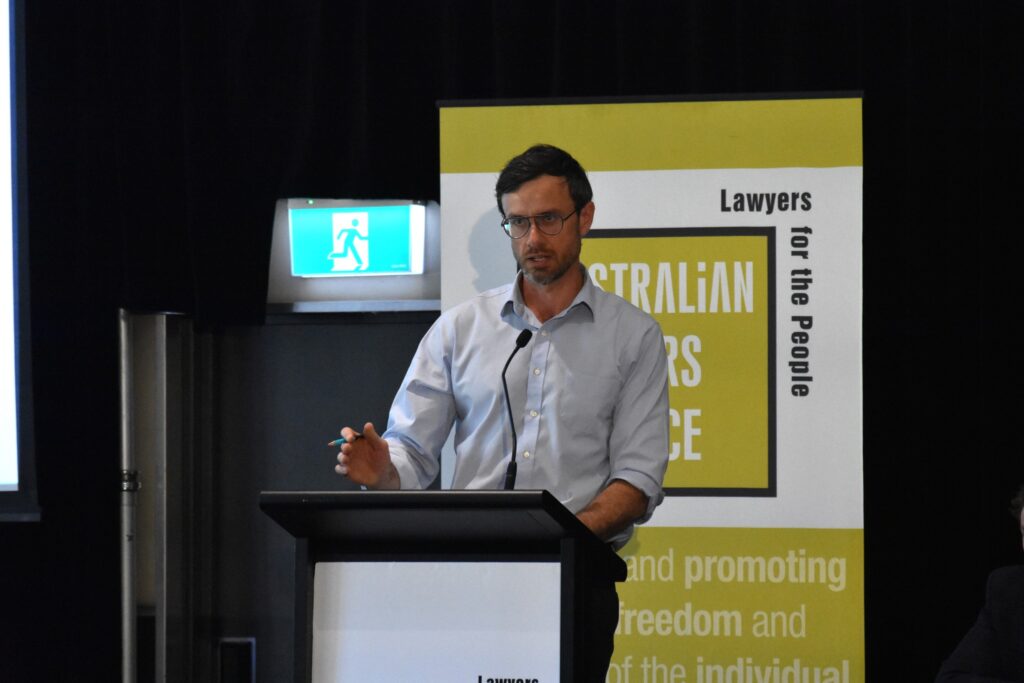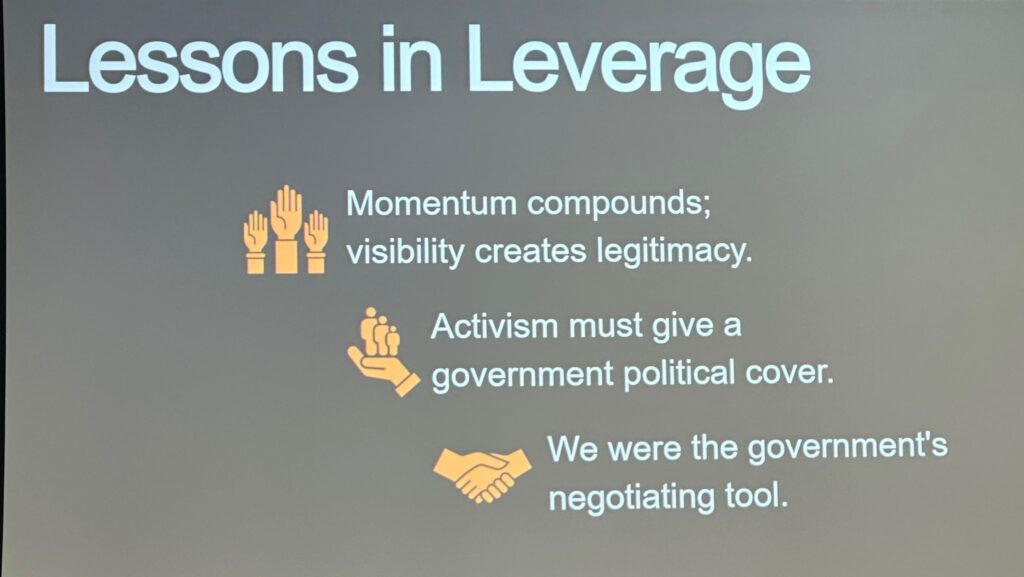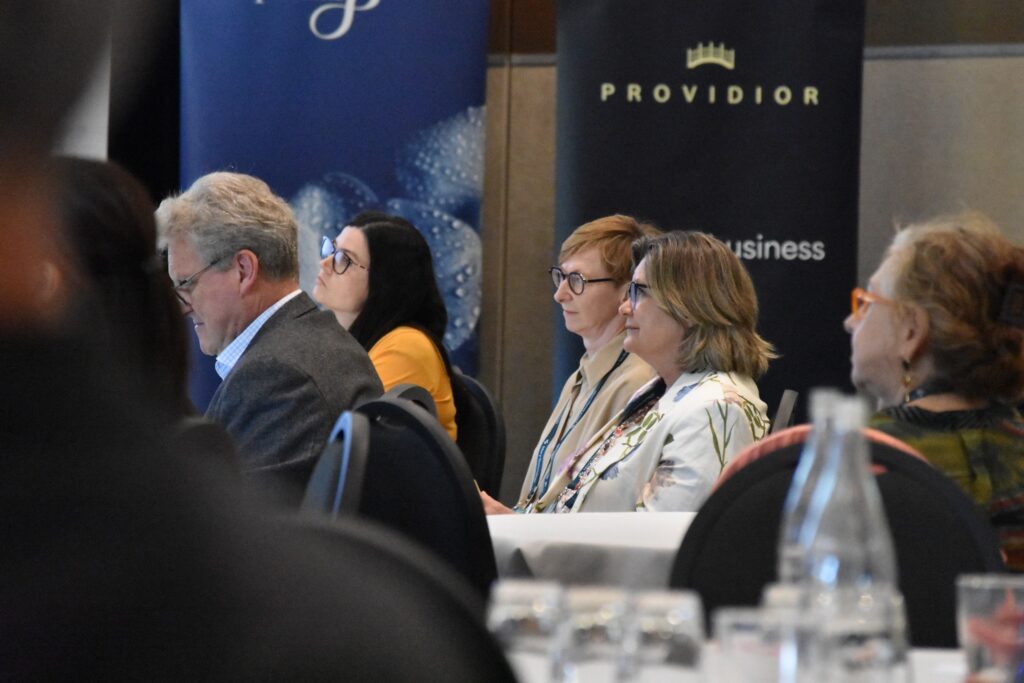Revisit the recent Australian Lawyers Alliance 2025 National Conference from the lens of our General Manager – Commercial, Adam Platt-Hepworth.
In October I attended my first Australian Lawyers Alliance event: the 2025 National Conference held in the Hunter Valley in New South Wales. I have been to Professional Services-sector events in the past, but having recently joined Providior, a specialist financier serving the Personal Injury lawyers of Australia, I'm currently familiarising myself with the specific challenges and opportunities facing this highly specialised industry segment.
Providior sponsored the event on a non-exhibiting basis, meaning that we didn't have a stand from which to promote our wares. This suited me just fine. It enabled me to join more of the sessions and to get a sense for the topics that our existing and prospective clients are most engaged with.

Adam Platt-Hepworth Represents Providior
I have to say that as a group, the delegates at this event and particularly those who sit on the ALA state and national committees were a welcoming bunch. They were happy to lift the lid and answer my (occasionally naïve) questions. The committee is clearly aligned around a clear purpose: to help injured Australians secure their financial futures to the best of their ability.
These were some of my highlights:
- Keynote Address – The Campaign to Free Julian Assange
- Insights From Experts & Specialists
- The Effort & Dedication of the Presenters
- AI & Legal Tech
- The Big B Team – Blumers
Keynote Address – The Campaign to Free Julian Assange
Delegates had the privilege of hearing an outstanding story of perseverance in advocacy and campaigning from the understated and engaging speaker, Gabriel Shipton. Gabriel leads the Information Rights Project, an organisation that was created from the learnings, connections and momentum of the successful campaign to have Gabriel's brother, Julian Assange, freed from detention as part of a plea deal.

Gabriel Shipton Presents at ALA Conference 2025
I, like many, had only followed the Assange case by the headlines in the media and the news items on the radio. Hearing Gabriel's insight into the critical success factors of the campaign was very interesting indeed.
Gabriel's insights (as interpreted by me):
- Building early-stage support can be tough while a case is unpopular, but as momentum builds, the support intensifies and supporters are easier to find. Momentum compounds.
- Whatever political views might be held within party lines, some issues can unite an incredibly broad group of parliamentarians. Seeing images of Barnaby Joyce alongside Monique Ryan on their trip to Washington DC for example, was quite a surprise.
Engaging parliamentarians activates embassy support, in this case the Australian Embassy in DC. Trying to engage U.S. Lawmakers and bureaucrats without this support would be very challenging, virtually impossible. - Sustained cultivation of media contacts is of huge importance. Constant updates and backgrounding to journalists and editors and being willing to have uncomfortable conversations can ensure that the narrative cuts through.
- Knowing who-is-who in power matters and chancing upon a key powerbroker in a train cafeteria only happens by knowing who-is-who. Gabriel told a great story about a game-changing encounter with a Democrat politician on a train after trying to contact him for months.
I loved Gabriel's slide, Lessons in Leverage:

Lessons in Leverage from Gabriel's Presentation
Insights From Experts & Specialists
Among the ranks of the event sponsors were Occupational Therapists and other experts who are regularly called upon by lawyers to provide expert opinion and reports in support of an injury claim. One of these was Roger of Dohrmann Consulting who described himself as a myth buster. He spends his days trying to break products to replicate the accident or failure that caused an injury and to determine how the injury might have occurred.
Roger had a long and storied career as a design engineer with Ford Motor Company and played a major role in the architecture of what has become the world's fifth highest selling ute, the Ford Ranger, now sold in 180 countries. I was fascinated listening to Roger's stories of the evolution of that product, not because I'm a petrol-head (I am, actually), but because of the focus on broadening the potential market for the product through designing it for some of the most complex markets first.

Conference Attendees in Front of Providior Signage
The Effort & Dedication of the Presenters
It was apparent to me that the presenters had worked very hard to develop high quality papers. This was substantially apparent in an update from Sarah Grace, Brisbane Practice Leader at Travis Schultz & Partners, on vicarious liability and law reform following Bird v DP.
The depth of insight that was offered by Sarah's presentation was substantial, and it was explained in a way that even a non-lawyer like me could grasp the enormity of the need for law reform as it relates to vicarious liability.
Another standout was a panel discussion on Freezing Orders and how to use them effectively and prepare for successful application. This was an engaging session, with relatable examples offered.
AI & Legal Tech
Nothing is more topical in any industry conference than AI, its potential uses, pitfalls, opportunities and risks. Given the nature of this industry, the risks and pitfalls are considerable, but the opportunities are enormous. I had some inkling, but speaking with people like Luke Abagi and Rowan McNamee of Mary Technology and Edward Kirk of Supio (both sponsors of the event), opened my eyes to the scale of the opportunity this technology presents.
Put simply, details matter a lot in law and the prominence or otherwise of a detail or fact in a matter can have a major impact on the outcome of the case and the financial consequences for the injured plaintiff.
Previously, in my work with other professional services businesses, offshoring was a commonly adopted solution to workforce constraint challenges, but to date, I have not found this to be true in the PI legal space. There is a reluctance to embrace offshoring for fear of detrimental impacts on the quality of the work and risks stemming from recent legal decisions regarding the employment status of offshore contractors.
These purpose-built, industry-specific AI platforms offer a clear alternative and massive transformation in terms of workload for firms. As I heard Ed saying, these products are not to replace people, they are to free those people to be able to do more meaningful and higher impact work
In doing so, this technology will bring matters to a close faster and might relieve stress and time pressures across the sector.
The Big B Team – Blumers
Among the firms with delegates at the event, no firm brought more delegates than Blumers. This ACT-headquartered firm with offices in Tasmania and Western Australia, had almost twenty delegates in attendance ranging from the partners and directors to junior solicitors. I had the pleasure of speaking with these delegates and I loved the approach that they see as making Blumers a great place to work. In short, they see team culture as paramount. The directors take it upon themselves to be present in all of their offices on a regular basis and to engage with the whole team. Their focus is on capacity and capability building.
They also emphasise hiring local. In Tasmania where the supply of talent is constrained, it might be seen as a quick fix to relocate lawyers from other states, but they prefer to take longer to recruit and hire local talent that wants to stay and contribute to the growth of the firm in that jurisdiction.
I look forward to representing Providior at future ALA events and invite any delegates to connect with me on LinkedIn.